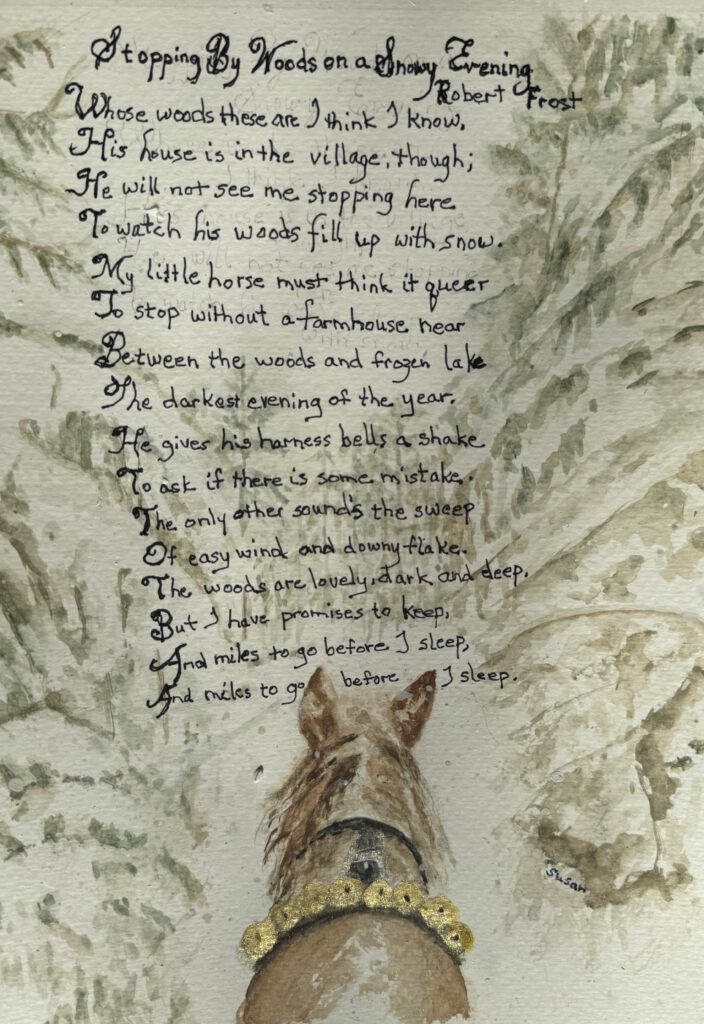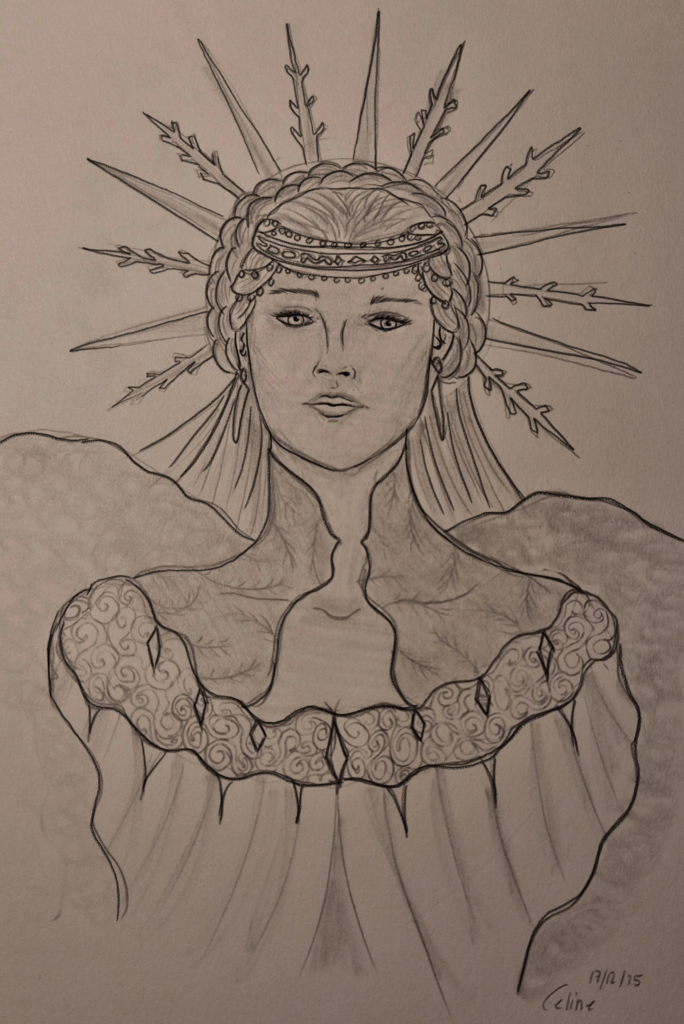The Pivotal Position of Henry V in the Rise and Fall of Shakespeare's Prose
Robert Crosman
Published in Connotations Vol. 2.1 (1992)
Abstract
The essay traces the proportion of prose in Shakespeare’s plays, identifying genre and chronology as the two major variables influencing the rise and fall over time. In his analysis—that offers closer examinations of prose by Falstaff and Young Hal in 1 Henry IV and the prose used by Hal (then King Henry) in his regal role in Henry V, namely in the disguise scene in 4.1 and the wooing of Katherine—he treats prose as entering into the body of Shakespeare’s work primarily through the comedies where it serves as a comic element of the “world of the tavern”. It then shifts to function, “by the end of Henry V, [as] the language of common humanity” used by the titular character in his mastery over all his roles: as scholar, soldier, statesman and spouse.
Only five of Shakespeare's thirty−seven plays have more lines of prose than of verse. All are plays attributed to the middle of his playwriting career, and four are comedies, the fifth being a history play, 2 Henry IV. With the help of a useful chart at the end of Brian Vickers' book on Shakespeare's prose, one can trace an interesting rise and fall over time: the proportion of prose in Shakespeare's plays increases with some regularity until about 1600, and then it begins to decline, ending at about where it began.1) The comedies have a higher proportion of prose than the other two genres, and the histories have more than the tragedies, yet the rise and fall can be traced in all three genres, and climaxes for all three between 1596 and 1601, if current dating of the plays can be trusted.
The two major variables in this story are genre and chronology. Comedy's link to prose is easy to see, but even that apparently obvious connection is complicated by the other, less easily understood variable, chronology. What is probably Shakespeare's first comedy, The Comedy of Errors, is about 13% prose, and with the exception of A Midsummer Night's Dream and The Merchant of Venice, the proportion of prose rises in every comedy until it reaches a preponderance in Much Ado, As You Like It, Merry Wives, and Twelfth Night, then gradually declines to 21% prose for The Tempest. And the histories (1 & 2 Henry IV and Henry V) written during the period (1596−1599) when prose was in the ascendant are nearly half prose, and one of two tragedies written during the same period, Hamlet (c. 1600), shows a high proportion of prose lines, almost one−third, although Julius Caesar (c. 1599) does not.2)
Apparently Shakespeare's use of prose was linked to certain ideas of decorum, of what was "appropriate" to certain moods, characters and [→page 2] situations. In the stage conventions of the 1590s, which Shakespeare did more than anyone to establish, prose is more appropriate than verse for comedies and for comic scenes, more appropriate for lower−class than for upper−class characters, and more suited to "realistic" speeches than to "idealistic" ones. But although these conventions make the comedies the richest loci of Shakespearean prose, the mixed genre of the history play is the best place to test their strength. There, as we shall see, Shakespeare began altering the conventions by writing prose for nobles to speak, and began writing prose for situations that were neither comic nor "realistic."
The question I ask in this paper is "Why?"—why did prose suddenly take over Shakespeare's histories (2 Henry IV: 54% prose lines), as well as his comedies (Merry Wives: 89.5%), and even make inroads into tragedy (Hamlet: 31%)? And then why did the trend reverse itself, and Shakespeare's use of prose gradually decline, so that by the end of his career he was writing comedies with less than a quarter prose, and a history (Henry VIII) with almost none at all? My answer has something to do with Elizabethan hopes for a continuation of a popular monarchy, and with the death of those hopes on the accession to the throne of James I. But let us go back to early 1597, the probable date of 1 Henry IV, and take up the story there.
Before writing 1 Henry IV, Shakespeare had already managed to write six history plays, none of them containing more than 14% prose (2 Henry VI), and four with none at all, including Richard II. Yet the very next history, 1 Henry IV, is nearly half prose—over half, probably, if we were to count words rather than lines. Whatever happened to make Shakespeare discover prose happened rather suddenly in 1 Henry IV.3)
"What happened," most students of Shakespeare would answer, "was Falstaff." Falstaff is the presiding genius of Shakespeare's prose. Not only does his arrival lead to a decisive turn toward prose in the rest of the second tetralogy, but his appearance in a comedy, The Merry Wives of Windsor, coincides with the high−water mark of Shakespeare's use of prose in any of his plays. In most productions of the two Henry IVs this disreputable character is so diverting that he quite steals the show, but Shakespeare made Falstaff disreputable not for his own sake, but as a partner, a lightning rod, and ultimately a foil for the prince. So at [→page 3] the very least we must modify our first assessment and say "what happened was Falstaff−and−Hal."
In fact it is Henry, not Falstaff, who fires the first substantial salvo in Shakespeare's prose revolution. Falstaff enters on a line that is only one foot short of being blank verse—it is even conceivable that Shakespeare wrote it as verse and then changed it, by some such deletion as the one provided by my bracketed insertion:
Falstaff Now Hal, what time of day is it, [my] lad?
Prince Thou art so fat−witted with drinking of old sack and unbuttoning thee after supper, and sleeping upon benches after noon, that thou hast forgotten to demand that truly which thou wouldst truly know. What a devil hast thou to do with the time of the day? Unless hours were cups of sack, and minutes capons, and clocks the tongues of bawds, and dials the signs of leaping−houses, and the blessed sun himself a fair hot wench in flame−color'd taffeta, I see no reason why thou shouldst be so superfluous to demand the time of the day. (1 Henry IV 1.2.1−12)
To most critics who comment on this speech, Hal seems merely to be filling the choreic role of introducing his fat companion with a character−sketch, but Hal is, after all, the more important person here, who has just been censured in the previous scene by his father the king ("riot and dishonor"). Hal's first, low−comedic speech on the subject of liquor and bawds seems amply to confirm his father's characterization—by associating with a person such as he describes, Hal is apparently condemning his own character along with Falstaff's.
Yet this first speech is also a mocking diatribe against Falstaff's character, accusing him of gluttony, lechery, and (by implication) of dissembling ("What a devil hast thou to do with the time of the day?"). When he quibbles with Falstaff's question, Hal is already engaging in what will become Falstaff's favorite figure, asteismus, "the returning of a different sense of a word" (Vickers 92) before his companion has a chance to do so. In short, it is not Falstaff but the prince who initiates the luxuriant, disingenuous style we associate with the former. But added to this style is something uniquely his own—a stinging wit based not only on logic but also on perfect moral pitch: the "lowness" of Hal's subject−matter is redeemed by the clarity with which he sees its baseness and labels it as such. At this point Shakespeare's use of prose is still [→page 4] comic, if you will, but something new is present: a dignity and discernment that we associate with his well−born characters, and with blank verse. Talking to Falstaff, Henry must speak prose, perhaps, but being a prince and an English folk hero he must not sound foolish.
Both Jonas Barish and Brian Vickers have written valuable analyses of Hal's first speech. Both find ways of making its rhetorical structure visible in the way they print it on their pages, and both demonstrate that it has a rising, climactic shape that illustrates careful planning on Shakespeare's part, and something akin to forensic genius on Hal's, if we are to credit him with the speech's artistry:
Improvisation needs ground rules [Barish writes], and Hal's construction of a certain syntactic frame gives him freedom: he does not have to worry about what to do with his clauses, or where to put them. Having erected a rapid scaffolding that presupposes some degree of balance and likeness, he can proceed to forget it and concentrate on the details; he can extemporize, as he does, with lordly abandon. The suspended sentence, for him, is no stranglehold, but a set of strong struts. Shakespeare may be planning his effects with the utmost care, but Hal, at least, seems to be talking with perfect naturalness.4)
Yet for Vickers the brilliance of Hal's prose is somehow made to redound to Falstaff's credit, and despite the fact that he speaks first, speaks brilliantly, and speaks from an independent, even a dominant position of logical and moral clarity, Hal is made to seem little more than Falstaff's straight man.5)
Milton Crane's book, Shakespeare's Prose, seems also rather to scant Hal's role in this linguistic universe. At one point he observes that while the other characters can be assigned to one of the two "worlds" of verse or prose, "Hal's position remain[s] always ambiguous."6) Then he observes that "The Prince, in general, takes his cue from his company, speaking prose in the tavern and verse in the court with equal facility" (87). When finally Hal speaks verse to Falstaff (5.3.39 ff.), Crane attributes this to a character−change: "Hal is now no longer the boon companion, but the valiant knight, and reproves Falstaff in straightforward verse" (87).
The implication of these various pronouncements is that Hal is the central character of this play only in the sense that he binds everything together—the two [→page 5] plots, the two "worlds" of court and tavern, the two styles of verse and prose—like connective tissue, perhaps, a reactive character who "takes his cue from his company." And indeed Hal is a hard character to sort out in terms of style, a chameleon poet whom we can sometimes catch in an indeterminate middle−state:
Prince What, stands thou idle here? Lend me thy sword.
Many a nobleman lies stark and stiff
Under the hoofs of vaunting enemies,
Whose deaths are yet unreveng'd. I prithee,
Lend me thy sword.Falstaff O Hal, I prithee, give me leave to breathe awhile. Turk Gregory never did such deeds in arms as I have done this day. I have paid Percy, I have made him sure.
Prince He is, indeed, and living to kill thee. I prithee, lend me thy sword.
Falstaff Nay, before God, Hal, if Percy be alive, thou gets not my sword; but take my pistol, if thou wilt.
Prince Give it me. What, is it in the case?
Falstaff Ay, Hal, 'tis hot, 'tis hot. There's that will sack a city.
The Prince draws it out, and finds it to be a bottle of sack.
Prince What, is it a time to jest and dally now?
He throws the bottle at him. Exit.
Falstaff Well, if Percy be alive, I'll pierce him. If he do come in my way, so; if he do not if I come in his willingly, let him make a carbonado of me. I like not such grinning honor as Sir Walter hath. Give me life, which if I can save, so; if not, honor comes unlook'd for, and there's an end. [Exit.] (5.3.39-61)
Crane describes this scene as "wound up in prose" (87), which indeed it is in Falstaffs speeches. But as Bevington demonstrates by setting up Hal's speeches as verse, they scan, although the hard-breathing urgency of ''lend me thy sword" twice ends a speech on a truncated line. Is this a comic scene? Yes, at least as long as Falstaff holds our attention, but our concern for the Prince and his weaponless state, for which Falstaff can't or won't provide a solution, gives it a serious, suspenseful undercurrent. The tension of moods is reflected in the tension of styles, to which the prose—verse tension contributes a great deal. What from a purely formalistic point of view looks like an anomalous mixture of verse and prose—not merely within a single scene, but within several of Hal's short speeches!—becomes from a more fluid Shakespearean [→page 6] perspective a growing versatility in Hal's style, so that he will eventually be able to express himself in any style, from the most bombastic Falstaffian prose to the noblest, most princely verse, and to move quickly from one decorum to another, as his needs change.
The principle governing Shakespeare's writing of Hal's speeches is that the Prince speaks "every man's language," and speaks it better than the man himself, whether it be the one-word Drawer Francis, whose "Anon, anon, sir!" Hal plays tricks with, or Falstaff, who is continually bested by his princely protege, whether in the discussion of Falstaff's cowardly behavior at Gadshill, or in the subsequent roleplay of King and Prince, in which Hal instructs Falstaff how to impersonate both characters. Indeed, when the time comes Hal knows how to convince his father that he is fit to wear the crown, and after his father's death he wears it most becomingly.
Given that there are two plots in the Henry IV plays, one of them comic, and that Hal moves back and forth between the two because he is the person in whose body England's hopes of reunification are located, the Prince must continue speaking prose to characters not capable of speaking verse. Still, there is a remarkable difference in tone and mood between Hal's first appearance in 1 Henry IV, scolding and ridiculing Falstaff for his crimes and vices, and his belated first appearance in 2 Henry IV and his mock-elegy to "small beer." The mood here modulates from ridicule of Poins's lack of clean linen to sadness at Hal's father's illness, and then to a frank discussion of his difficulty in expressing that grief:
Prince By this hand, thou thinkest me as far in the devil's book as thou and Falstaff for obduracy and persistency. Let the end try the man. But I tell thee, my heart bleeds inwardly that my father is so sick. And keeping such vile company as thou art hath in reason taken from me all ostentation of sorrow.
Poins The reason?
Prince What wouldst thou think of me, if I should weep?
Poins I would think thee a most princely hypocrite.
Prince It would be every man's thought, and thou art a blessed fellow to think as every man thinks. Never a man's thought in the world keeps the roadway better than thine. Every man would think me an hypocrite indeed. And what accites your most worshipful thought to think so? [→page 7]
Poins Why, because you have been so lewd and so much engraffd to Falstaff.
Prince And to thee. (2.2.42-60)
In this scene, from which Falstaff is significantly absent, Hal modulates from a decorum that matches prose to levity, to a decorum that uses prose to express the private and sincere, as opposed to the public performance of conventional scripts that hide the true, human feelings. Other characters in Shakespeare's plays have bared their souls in speeches that smack of the confessional, and Falstaff has previously done so in prose—"Bardolph, am I not fall'n away vilely since this last action? ... Well, I'll repent ... Company, villainous company, hath been the spoil of me" (1 Henry IV 3.3.1-10)-but Falstaffs was a rhetorical tum, the preparation for a jest, or the complacent self-revelation of a soul unable fully to believe in its own damnation. While Falstaff shifts the blame for his spiritual condition onto the shoulders of his "villainous company," Hal blames Pains and Falstaff only for bringing his reputation into disrepute. In vindicating himself against the low esteem in which the world holds him, and hinting again at the amendment he has already promised, Hal speaks serious truth in prose, making it the medium, and perhaps the index, of his sincerity.
II.
Although the conventional wisdom is that Falstaff is the presiding genius of Shakespeare's prose, Hal and Falstaff interact very little in 2 Henry IV—once in the scene (2.4) where Hal and Pains spy on Falstaff and hear him defame them; the other at the end of the play, when the Prince disowns Falstaff, in verse—and yet as we have seen the Prince goes on finding occasions to speak prose. Indeed, it is after the fat knight's disappearance, in Henry V, that Hal, now King Henry, speaks his greatest prose.
Many of the prose-speakers of Henry V are comic characters—Bardolph, Fluellen, the Dauphin when he's being especially foolish—or those who associate with them, like Orleans and the sober Gower. But Henry, in disguise, has a great prose scene defending "the King" against the [→page 8] charges of Bates, Court, and Williams that their ruler is better off than they.
The before-battle scene is a recurrent one in Shakespeare's histories and tragedies, yet this (4.1) is the only one in which the general engages in talk with his troops. Such behavior is extraordinary. In order to play his part, Henry must disguise himself, for as he remarks at line 100, it is inappropriate for a commander and his men to speak honestly before a battle, lest they show fear and thus discourage one another. Yet he exposes himself to precisely such a danger, and indeed to a far worse one, since the soldiers show that they have no stomach for Henry's war, and are disposed to blame him for their lack of enthusiasm
The apparent indecorum of doffing the royal garments in order to mingle with his social inferiors enforces the further indecorum of speaking of serious matters in prose. Bates, Court, and Williams, being common soldiers, are presumably not capable of verse. But the deeper point is that the relationship between the King and his subjects must be understood even by the uneducated, because all subjects have a part to play in a successful reign. Surprisingly, Henry's argument is not that the King is better or wiser than his subjects, and thus to be trusted. Rather than boasting of his strengths, Henry confesses the King's weaknesses:
King ... though I speak it to you, I think the King is but a man, as I am. The violet smells to him as it doth to me; the element shows to him as it doth to me; all his senses have but human conditions. His ceremonies laid by, in his nakedness he appears but a man; and though his affections are higher mounted than ours, yet, when they stoop, they stoop with the like wing. Therefore when he sees reason of fears, as we do, his fears, out of doubt, be of the same relish as ours are. Yet, in reason, no man should possess him with any appearance of fear, lest he, by showing it, should dishearten his army. (100-12)
Henry's argument is that though they have different roles to play (his word for social role here is "ceremony") king and subjects are essentially one flesh, the "band of brothers" he will shortly assert them to be in his rallying speech (4.3.60). Thus the common soldiers, though they play a different role, are as essential to the success of the common enterprise as is the king, and they must assume the same responsibility for [→page 9] acquitting their role as the King does his. This point Henry makes most clearly when he argues that the King is not responsible for the damnation of those soldiers who will die tomorrow in a state of sin: to deprive them of that responsibility would also be to deprive them of the dignity of free moral agents, who alone have the means to determine their own salvation or damnation.
Here as elsewhere Henry evokes the best energies in his troops by paying them the complement of treating them as equals. To do so he must "disguise" himself in the borrowed cloak of prose, but as so often in Shakespeare, the donning of a disguise does not so much disguise the truth as reveal it in a new and impressive way: only by dissembling his identity can the King reveal his common human nature. The soldiers do not at present realize who it is who is arguing for the King's essential humanity, but we in the audience know, and by exchanging gloves with Williams, Henry arranges for them to learn his true identity after the battle.
The King is but a man—Richard II discovered this fact when Bolingbroke rebelled against him, and it filled him with despair:
Cover your heads, and mock not flesh and blood With solemn reverence. Throw away respect, Tradition, form, and ceremonious duty.
For you have but mistook me all this while.
I live with bread like you, feel want,
Taste grief, need friends. Subjected thus,
How can you say to me I am a king? (3.2.171-77) 7)
What Richard could not endure thinking about becomes Henry V's greatest strength, however. And when his common humanity is at issue, Henry speaks prose, the language of common mortals.
III.
French royalty is capable of speaking prose on occasion, as in the Princess Katherine's English lesson (3.4), or when the Dauphin is being particularly silly (3.7). But these are comic scenes. The last and to my [→page 10] mind the greatest instance of Shakespeare's stretching the decorum governing the use of dramatic prose is in the interview between Henry and Katherine. The participants are royal, not base, and the occasion—a proposal of marriage—is not what we would call "realistic" in the sense of needing the blunt statement of unpleasant truths. Only comedy, the third of our three touchstones for prose scenes, is present, both in the comic associations of love and marriage, and in the wit that Henry brings to his task, but the scene has the fundamentally serious aim of ending the war and accomplishing Henry's mission of reestablishing Plantagenet rule in France by joining the ruling families of the two kingdoms in marriage. For such a scene, Shakespeare was quite capable of writing brilliant verse, as he had often done for wooing scenes in the past.
Why then did Shakespeare write it in prose? The obvious answer, that the two speakers are inexpert in each other's language, is not entirely satisfactory. For one thing, King Charles, Queen Isabel, and the Duke of Burgundy have all just expressed themselves in flawless English verse—why is Princess Katherine alone portrayed as unable to speak English? It could be argued that having written the earlier scene where Katherine is learning her first few words of English, Shakespeare was now forced to continue portraying her as essentially ignorant of English, but since an indefinite time has elapsed since her first introduction to English Katherine could now be portrayed as having gained a command of the language similar to the others at the French court, or Shakespeare could have omitted the earlier scene entirely. No, Henry doesn't speak prose because the Princess speaks broken English; rather the reverse—she is given broken English to speak so that their interview can be conducted in "Franglais," and in prose.
The purpose, I suppose, is in crude terms dramatic variety. Henry has already been displayed as endlessly eloquent, both in verse and in prose: eloquent in the best sense of the word-that is, he fits (as Hamlet urged) the word to the action, the action to the word. He has language for every occasion, and for every audience. In one memorable scene, he apparently convinces God himself to "think not upon the fault/ My father made in compassing the crown!" (4.1.290-91). In short, Henry shows himself equal to every rhetorical task that a King must deal with, including the hardest of all—that of removing the robes of ceremony and speaking [→page 11] as a mere man, prey to the same frailties and doubts as any less exalted mortal—this of course was the feat that neither of his two predecessors, Richard II and Henry IV, was able to accomplish as King, and their inability to do so played some part in their being subject to rebellions from those who saw them as arrogant and uncaring.
Now Henry, who has conquered France not merely with his arm, but also with his words, has France and Katherine in his power-is he going to insist on his rights of conquest, or recognize that in asking for her hand he must beg for her love? He begins ineptly with a stale verse conceit-he is a conqueror who has been conquered by love (5.2.98-101). When Katherine fails to understand this conventional (and selfcongratulatory) gallantry Henry begins again, this time more simply, in prose: "Do you like me, Kate?" (108-09). This leads to another bit of romantic gallantry (110-11) for which he is roundly rebuked.
The ''like an angel" tactic was a mistake, Henry recognizes, but at least he has now got the measure of the opposing army, and can improvise a new strategy. Now the "soldier" persona can be made to justify a style that Henry calls "plain" and ''blunt," though it is neither. Rather it is eloquent in a folksy way, rhetorically complex but earthy in its vocabulary, boasting, under the guise of apology, that Henry is unable to do what Katherine has just condemned as deceitful, i.e. play the role of courtly lover:
before God, Kate, I cannot look greenly, nor gasp out my eloquence, nor I have no cunning in protestation—only downright oaths, which I never use till urg'd, nor never break for urging. (144-47)
This is both deceptive and true. It is true that Henry does make a point of keeping his promises, but not for lack of cunning.8) Yet Henry's claim to be a tongue-tied soldier is pure moonshine, as the audience is by this time well aware. Thus we can both appreciate Henry's "deception," and at the same time marvel at Katherine's capacity, and our own, to be taken in by it.
That Henry's conquest of Katherine's heart is a masterpiece of rhetorical composition is amply documented by Vickers: antemetabole (II. 110-11; 136-38; 242-44), epanorthosis (163-66), gradatio (166-69), epistrophe (238-40), [→page 12] as well as more pervasive qualities of "parallelism and disjunction" (p. 167), "symmetry'' (p. 169) and its apparent opposite, as in the sweet disorder of Henry's French (II. 184-85; 217-18). Yet this scene will not yield its secret to a purely formal analysis, and clearly Shakespeare has used anti-rhetoric as largely as rhetoric itself—not merely Henry's claims to lack of eloquence, but the false starts, the changes of direction, the lapses into and out of French, and of course the transition from verse to prose. Improvisation governs its movements as much or more than any foreseen rhetorical strategy, just as in a battle, unforseen dangers and opportunities arise and must be met. And (as in battle) what is happening is unclear—is Henry courting Katherine or threatening her? Is he trying to disguise his role-playing, or to demonstrate how well he knows how to play his role? Is he being witty or serious? Are we expected to laugh, to be impressed, or perhaps to cry? When Katherine yields:
King Henry Wilt thou have me?
Katherine Dat is as it sall please de roi mon père.
King Henry Nay, it will please him well, Kate. It shall please him, Kate.
Katherine Den it sall also content me. (247-51)
does she do so lovingly, or is she bowing to the inevitable? So many linguistic and cultural codes are being voiced here, both reinforcing and interfering with one another, that we are prevented from making any sure interpretation, even of such obvious things as the behavior and motives of the characters standing before us. As is true in our own lives, there are mysteries in this scene that we can guess at, but not know.
Yet it invites us to interpret, and I will interpret. The key to this scene, and to the entire play, and to its hero and his career in this and in the two earlier plays he inhabits is mastery. Henry masters Katherine as he had earlier mastered Francis the Drawer, Hotspur, his father, Falstaff (from their first scene together, not merely at the end of 2 Henry IV), the bishops, the plotters, the army, England and France, and for a time God himself. He achieves this personal mastery by being in control of the arts of language, of war, and of princely rule. Above all, with God's help he has mastered himself. Scholar, soldier, statesman, he is the complete Renaissance prince, and when he promises to add to these roles that of loving, faithful spouse—a role, Shakespeare everywhere [→page 13] implies, as difficult and dignified as Henry's other principle social role, that of King—he paradoxically adds to his own unique accomplishments and yet merges with every one of us, who are or have been or can expect to be spouses. In suing for Katherine's love, Henry is "only a man."
IV
Prose, by the end of Henry V, is the language of common humanity, an index of the royal speaker's connectedness with his non-noble subjects, and with his future wife. William Shakespeare, a commoner who enriched himself in the public theater and then retired to live the life of a gentleman, complete with a coat of arms that he bought from the College of Heralds, shows every sign of having believed in aristocracy, but an aristocracy constantly refreshed by an infusion of common blood, common language, common sense and practicality. And during Elizabeth's reign, at least, he seems to have believed in kings who supported and were supported by "the people," kings who never forgot that at base they too were merely men, and who knew how to speak the common language when occasion called for it. That common language was prose.
But then he stopped writing histories. Hamlet, the most like Henry of all Shakespeare's tragic heroes, speaks a good deal of prose, but much of it mimics mad-talk, and we must not forget that until the last act Hamlet is the play' s principle clown, hence a speaker of comic prose. Still, a scene like 2.2, where Hamlet speaks verse only in his closing soliloquy and in the speech he recites about the death of Priam, contains prose that is neither mad nor comic, including the "advice to the players," and the magificent "What a piece of work is a man" speech. Yet for all his nobility Hamlet comes to grief, just a Henry did, the will of God working in mysterious ways. Othello, Lear, Macbeth, Antony—all speak prose on occasion, but none are in a position to "ennoble" it, because they are themselves so deeply flawed, while masterful, regal characters like Duke Vincenzio and Prospero '1ower'' themselves to speak prose only to base characters, like Lucio and Caliban. [→page 14]
There is an idealism in Shakespeare's portraits of Herny, Hamlet, Rosalind and Viola that disappeared, for whatever reason, after about 1600, and was replaced by a darker, more pessimistic view of human nature. After about 1600 man did not delight Shakespeare so much as in earlier years, nor woman neither.9) And with that delight in common humanity went his delight in noble, non-comic prose, though he continued to use prose for certain wonderful effects that I have neither time nor space to discuss here.
University of Alaska
Anchorage
































 Ring out, wild bells, to the wild sky,
Ring out, wild bells, to the wild sky,













